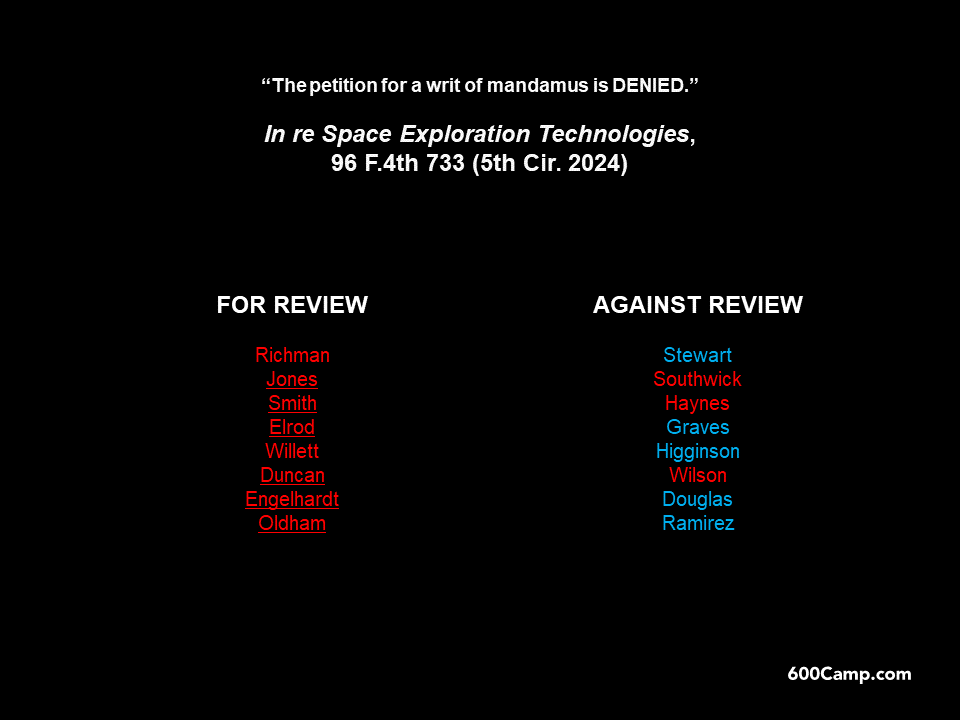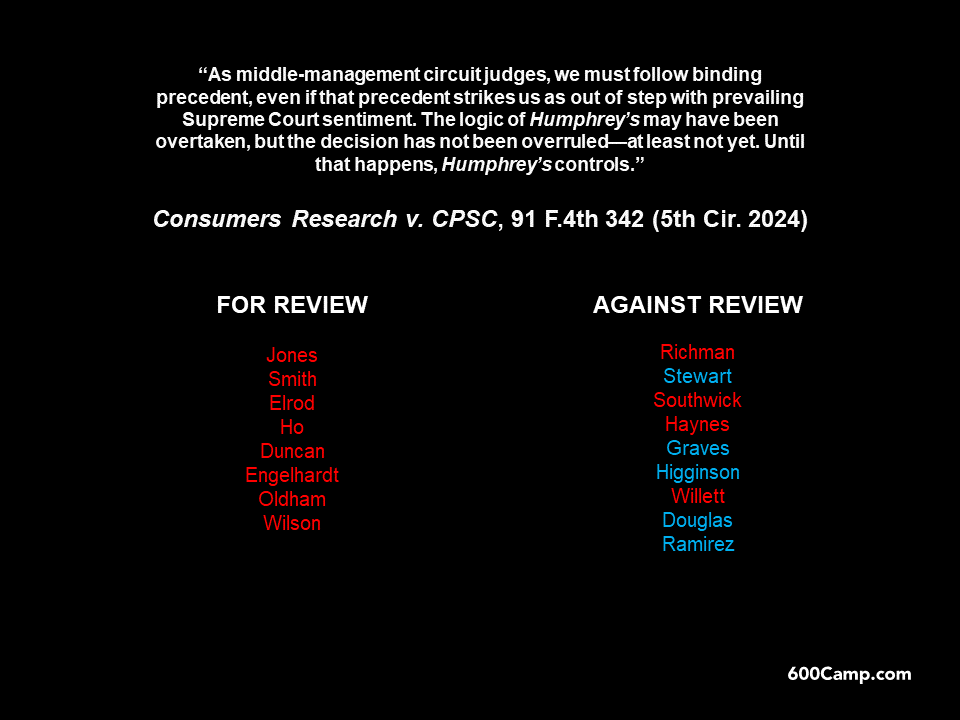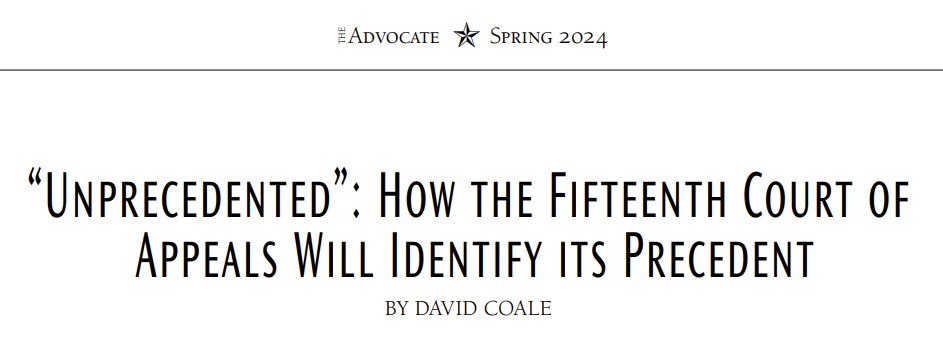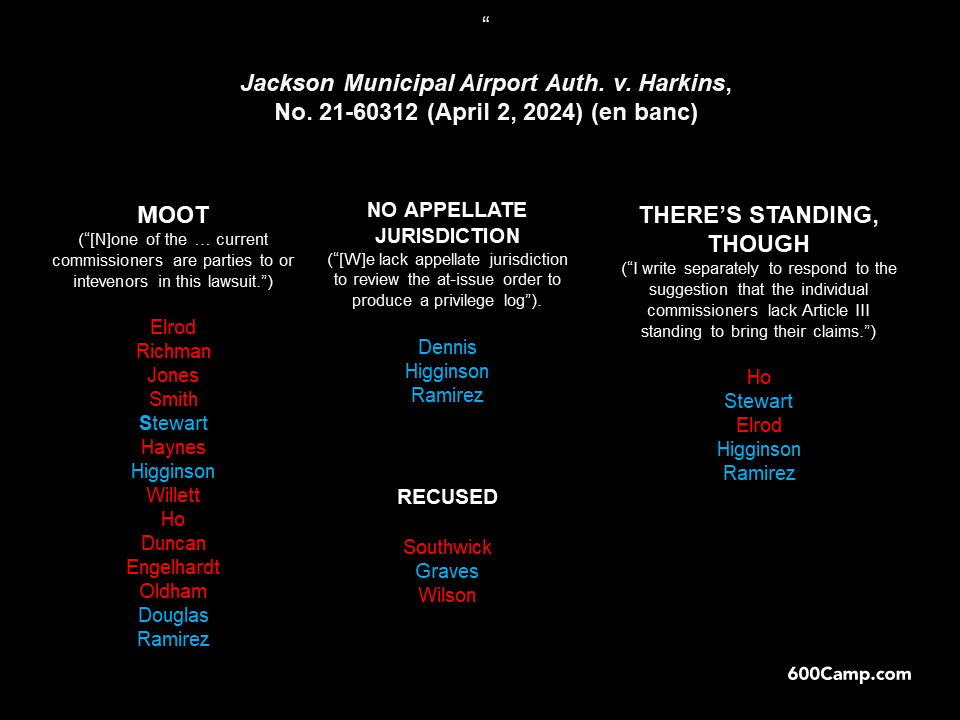 After a Fifth Circuit panel granted mandamus relief about a transfer of a case involving the CFPB to the District of Columbia, the district court there entered this Minute Order on April 10:
After a Fifth Circuit panel granted mandamus relief about a transfer of a case involving the CFPB to the District of Columbia, the district court there entered this Minute Order on April 10:
This case was received from the U.S. District Court in the Northern District of Texas on March 29, 2024. On April 8, 2024, the Court received a copy of the Order Reopening Case and Providing Notice to the United States District Court of the District of Columbia … issued by the Texas district court in accordance with In re Fort Worth Chamber of Commerce, No. 24-10266 (5th Cir. Apr. 5, 2024) (attached to Notice and Order). The Fifth Circuit found that the district court lacked jurisdiction to transfer the case while an appeal was pending before the Court of Appeals, and it ordered the district court to “reopen the case and to give notice to D.D.C. that its transfer was without jurisdiction and should be disregarded.” While the Court is not inclined to “disregard” a case on its docket, and it has considerable discretion to supervise its own cases, a review of the Notice and Order, as well as the docket in the Northern District of Texas, reflects that the case is now proceeding there under the supervision of another district court. Therefore, the case will be terminated on this court’s docket at this time without prejudice. This order should not be read to express any view on the transfer question, which has not been presented to this Court to decide. The Clerk of Court is directed to terminate this case on the docket of the District Court for the District of Columbia.
Meanwhile, back in New Orleans, the Fifth Circuit has asked for supplemental briefing about “whether or not an ownership interest in a nonparty large credit card issuer would be substantially affected by the outcome of this litigation,” for purposes of evaluation potential judicial recusal. On May 3, the panel released a revised opinion.
![]() To the right is a painting of Julius Caesar crossing the Rubicon. A river-crossing issue also arose in Good River Farms, L.P. v. TXI Operations, L.P. A severe flood on the Colorado River breached a water reservoir on a commercial property, which in turn led to the flooding of a neighboring farm.
To the right is a painting of Julius Caesar crossing the Rubicon. A river-crossing issue also arose in Good River Farms, L.P. v. TXI Operations, L.P. A severe flood on the Colorado River breached a water reservoir on a commercial property, which in turn led to the flooding of a neighboring farm.










